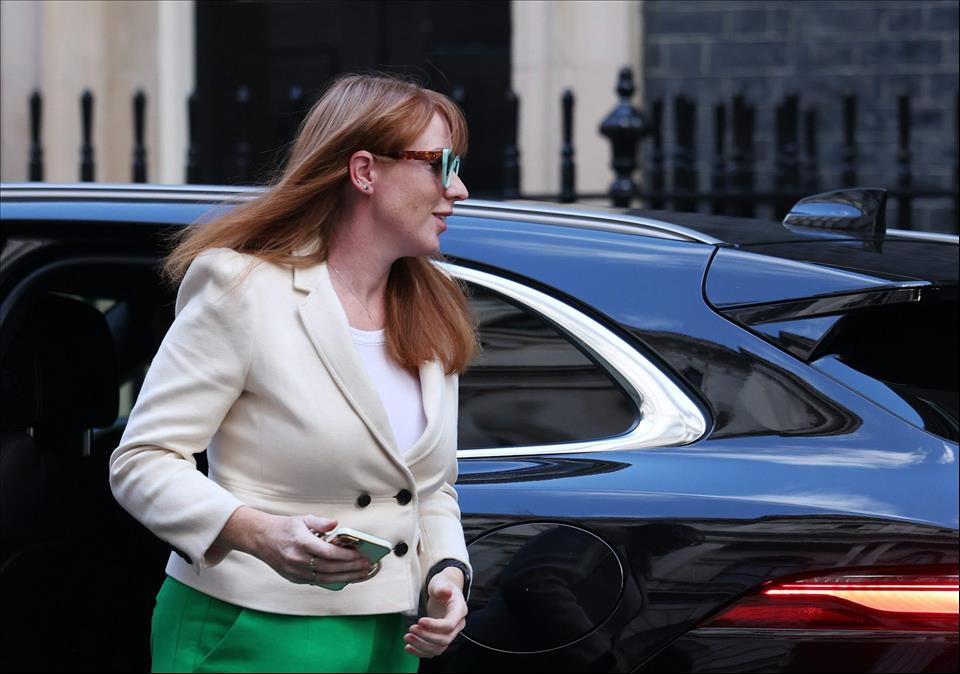
How Angela Rayner Managed To Underpay Stamp Duty Family Trusts And Tax Avoidance Explained
Rayner has resigned after being found to have breached the ministerial code in the wake of the stamp duty row. That erupted after she was said to have put her share of her constituency home in Greater Manchester in trust for her son, and to have bought another home in Hove, East Sussex, paying a lower rate of stamp duty than should be owed by a second homeowner.
In Rayner's case, a probable oversight and a trust created with legitimate intentions got caught up in legislation designed to discourage tax avoidance and ownership of a second home. Of course, it also left her open to accusations of hypocrisy, as a member of a government that championed higher taxes for second homeowners .
Earlier in the week, Rayner had said she took legal advice on the purchase. But her conveyancers then claimed not to have advised her on any additional tax liabilities that might have arisen due to the existence of a trust for her child.
So what is a trust – and why are they controversial for tax purposes?
Trusts have a long history – it's claimed that they were established to protect the property of knights who left England to join the Crusades. But despite these medieval origins, the modern trust still has a range of uses. For most people this will be as a mechanism for the ownership of land. All land has a legal title (the paperwork held by the Land Registry proving who owns the property in law).
But in addition to the legal title there will be what's called an equitable interest in the land – this is, the right to the financial value of it. When two or more people buy a house together they create a trust. Both names appear on the legal title and both will be entitled to a share of the equity too. Because there is a trust, one party cannot sell the house without the agreement of the other.
The Rayner row dominated the UK's front pages. Steve Travelguide/Shutterstock
The case of Rayner's constituency home is an example of how trusts are commonly used – for the protection of family assets. Children below the age of 18 are unable to own land, so if parents want to gift them land they need to use a trust. The legal title is held by a trustee such as a parent, lawyer or friend and the child is entitled to the value of the property as it is held for their benefit.
Rayner and her ex-husband are said to have created a trust which bought her share of the constituency home for the benefit of their disabled son. This followed a payout for damages in the son's medical negligence claim.
She retained no legal ownership of the house by the time she bought the Hove flat . A parent who creates a trust like this puts the financial value beyond their own reach and would be unable to sell the land to benefit from it personally.
Where Rayner came unstuckBut the Rayner case throws up an important question. Why, in the eyes of the law, is a parent who has given their only house away to a child in trust still considered a homeowner for stamp duty purposes? This introduces another use of the trust – the legal avoidance of tax. Trusts have been used to protect family assets from taxes such as inheritance tax – and so the government has tried to close loopholes and limit these opportunities.
This is what makes this situation so damaging for Rayner. As well as raising funds for the government, property taxes have also been used to nudge behaviour. For example an additional 5% rate of stamp duty is meant to discourage homeowners from tying up a second home. House price inflation has of course made this an increasing source of revenue for the government .
Read more: Housebuyers hate stamp duty. Why hasn't it been reformed before now?
The law taxes the buyers of second homes more heavily than those who own only one house. This is aimed at avoiding problems such as housing shortages in holiday destinations, and the kind of social disruption seen in places affected by the ownership of second or holiday homes in areas such as Wales and the Lake District.
In his time as chancellor of the exchequer, Gordon Brown made many such trusts subject to inheritance tax. If a homeowner was able to avoid the higher rate of stamp duty by putting their property into trust for their children, this could open a new loophole similar to that of inheritance tax, but for stamp duty.
Before her resignation, Rayner's political opponents also noted that, as deputy prime minister, she already enjoyed the use of Admiralty House. This is a grace-and-favour apartment in Whitehall which she did not, of course, own herself.
But perhaps the biggest question the controversy has raised is this. If a housing secretary, deputy prime minister and a team of experienced land lawyers are unable to accurately divine the correct rate of stamp duty, what hope is there for the rest of us?

Legal Disclaimer:
MENAFN provides the
information “as is” without warranty of any kind. We do not accept
any responsibility or liability for the accuracy, content, images,
videos, licenses, completeness, legality, or reliability of the information
contained in this article. If you have any complaints or copyright
issues related to this article, kindly contact the provider above.


















Comments
No comment